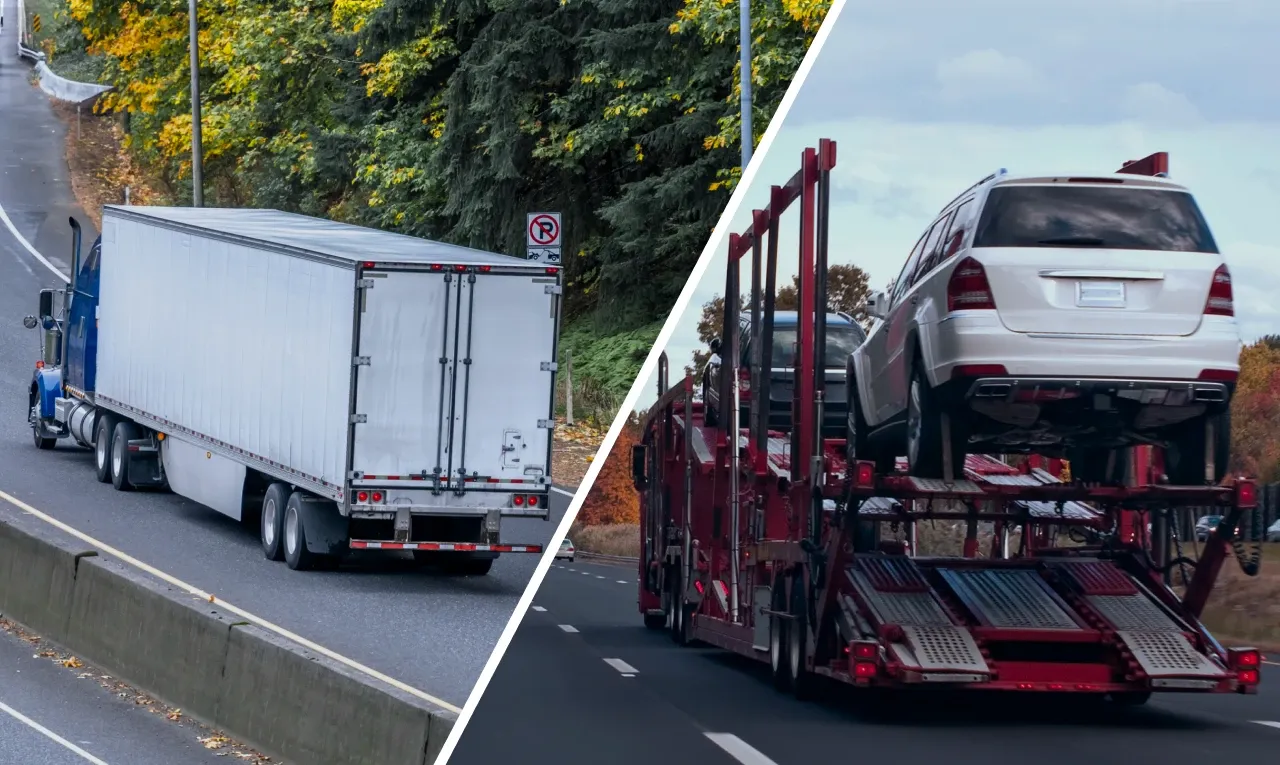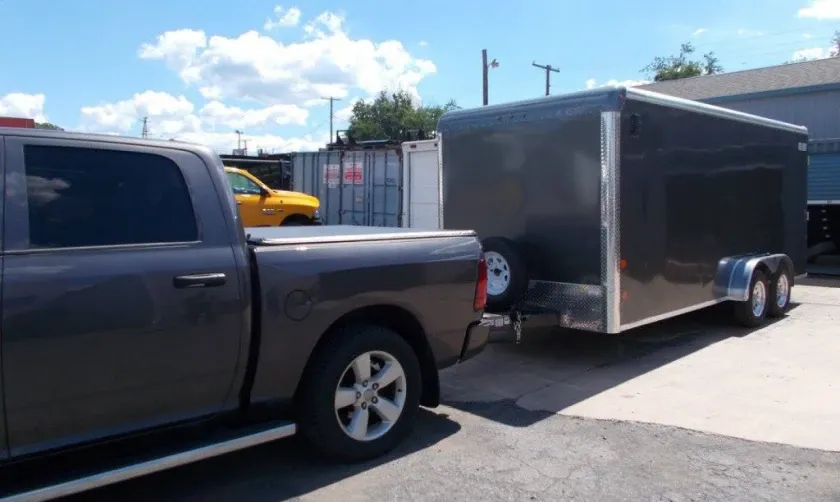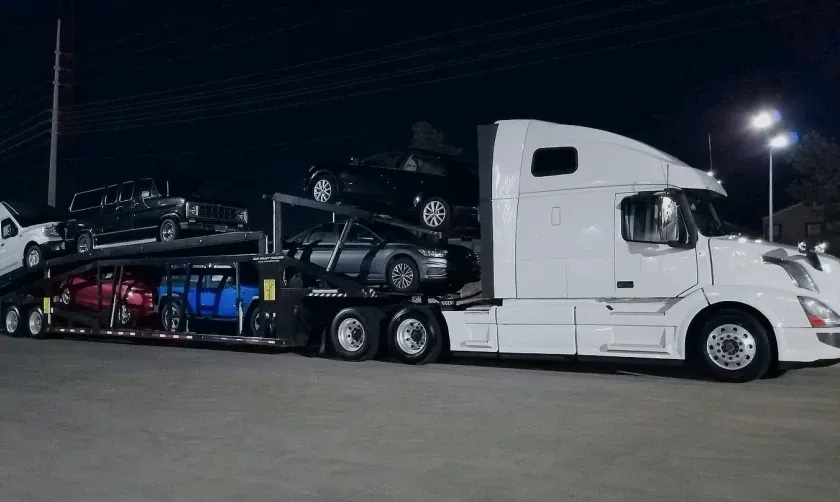Enclosed vs. Open Car Transport: Which is Right for You?

Car transportation is an important task, and as a car owner, you must exercise caution. Choosing the correct transport option is critical whether transporting a vehicle long distances or shipping expensive automobiles. In this post, we will discuss the fundamental distinctions between enclosed and open car transportation and the benefits and drawbacks of each.
By understanding these aspects, vehicle owners can make an informed decision on how to transport their vehicles that best meet their needs and priorities.
NATIONWIDE CAR HAULING WITH CAROLINA LOGISTICS LLC
Understanding Open Car Transport
The term “open car transportation” refers to the transportation of autos in an open-air trailer or carrier. Vehicles are placed onto a trailer with no protective covering or cage in this mode of transport. Typically, the trailer is exposed to the elements, including weather conditions such as rain, wind, and sunlight. Because it provides easy loading and unloading, open auto transport is widely utilized for shipping many vehicles simultaneously. To be more aware of this transportation mode’s good sides and flaws, we need to look closer at them.
Pros and Cons of Open Car Transport
Pros of open car transportation:
- Cost-effectiveness. Open automobile transportation lacks an enclosure and can transport many automobiles at once. It is a cost-effective choice for many vehicle owners.
- Availability. Many auto transport businesses provide open transport services, giving vehicle owners a variety of options.
- Efficient loading and unloading. Compared to enclosed transport, loading and unloading vehicles into open trailers is often faster and more efficient.
- Transparency. Vehicles are easily seen during transit with open car transport. Owners can inspect their automobiles visually throughout loading and unloading, offering transparency and assurance.
Cons of open car transportation:
- Exposure to elements. Vehicles are exposed to a variety of weather conditions while in transit, including rain, wind, and sunlight.
- Exposure to road debris. Open trailers expose cars to the risk of colliding with road debris such as gravel, stones, or dust.
- Limited protection. Unlike enclosed transport, open car transport lacks the added protection layer an enclosed trailer gives.
- Privacy concerns. Open car transport means your vehicle will be visible to the public while traveling. If you value privacy, you may prefer enclosed transportation to keep curious eyes away from your vehicle.
The Ins and Outs of Enclosed Car Transport
Enclosed car transport refers to a method of transporting vehicles in an enclosed trailer or carrier. As opposed to open car transport, enclosed automobile transportation provides a protective enclosure for the vehicles being transported. Enclosed trailers can be closed completely, offering protection from the elements and other risks.

Pros and Cons of Enclosed Car Transport
Pros of enclosed car transportation:
- Increased Protection. The automobiles are safely housed within an enclosed trailer, shielded from the elements such as rain, snow, hail, and UV rays.
- Best choice for antique and expensive vehicles. These cars frequently necessitate extra care and preservation because of their distinctive features, rarity, or sentimental worth. The enclosed trailer guarantees that such vehicles are protected and secure during transit.
- Added Security and Privacy. Transported automobiles are not visible to the general public, lowering the danger of theft, damage, or unwelcome attention.
- Limited Exposure to Road Hazards. Enclosed trailers protect against road debris like rocks, dust, and debris kicked up from the road.
Cons of the enclosed car transportation:
- Higher cost. The enclosed trailers’ specialized equipment and greater protection contribute to the higher price. If money is an issue, the increased cost of enclosed transportation could be decisive.
- Longer wait time. Due to its limited availability, enclosed automobile travel may have longer wait times for service. Because the quantity of enclosed trailers is often lower than that of open trailers, this service may be in more demand.
- Limited capacity. Enclosed trailers have limited space compared to open trailers, which can restrict the number of vehicles that can be transported simultaneously.
- Less flexibility. Certain constraints, such as limited collection and delivery locations or specified routes, may apply to enclosed car transport. It can limit the flexibility and convenience of arranging transportation, especially in rural or inaccessible places.
Choosing the Right Car Transport for You
There are various factors to consider while selecting car transport to ensure a good and dependable service. Here are several important considerations:
- Vehicle price. Enclosed auto shipping may be the best alternative for high-value, antique, or luxury vehicles to ensure maximum protection. Open auto transport, which is often less expensive, can move less expensive or daily vehicles.
- Your budget. Because of the additional protection and specific equipment required, enclosed car transport is typically more expensive than open transport. To make an informed decision, consider your financial ability and compare the car’s worth against the cost of transportation.
- Urgency. If time is of the essence, you may need to select a car transport service that provides accelerated or express services. Keep in mind that faster services may be more expensive.
- Weather conditions. If you’re shipping during a season with inclement weather, such as heavy rain, snowstorms, or high heat, you should consider enclosed shipment to safeguard your vehicle from weather damage.
- Insurance coverage. Learn about the insurance coverage offered by the car shipping provider. It is critical to understand the scope of coverage and any applicable deductibles or limitations.
- Pickup and delivery options. Some firms provide door-to-door service, while others may need you to drop off or pick up your vehicle at a designated terminal. Select the most convenient option for you and correspond to your schedule and location.
Making the Right Choice
When picking between open and enclosed car transport, it is critical to consider the value of your vehicle, your budget, the situation’s urgency, weather conditions along the route, and other criteria addressed previously. Enclosed automobile shipping is recommended if your car is valuable, classic, or requires particular care. Open automobile shipping can be cost-effective for regular autos or lower budgets.

As a dependable transportation company, Carolina Logistics can offer customized solutions to your individual requirements. Contact us for experienced advice and a tailored transportation solution that protects your vehicle’s safety and security.
Conclusion
Finally, while deciding between open and enclosed automobile transport, consider issues such as your car’s worth, budget, urgency, weather conditions, and other personal preferences. Enclosed car transport provides greater security, is ideal for high-value vehicles, and assures privacy. Open car transportation is less expensive and more generally available.
Carolina Logistics is ready to assist whenever you need advice on vehicle transportation backed up by quality service. Give us a call today to schedule your transportation.
